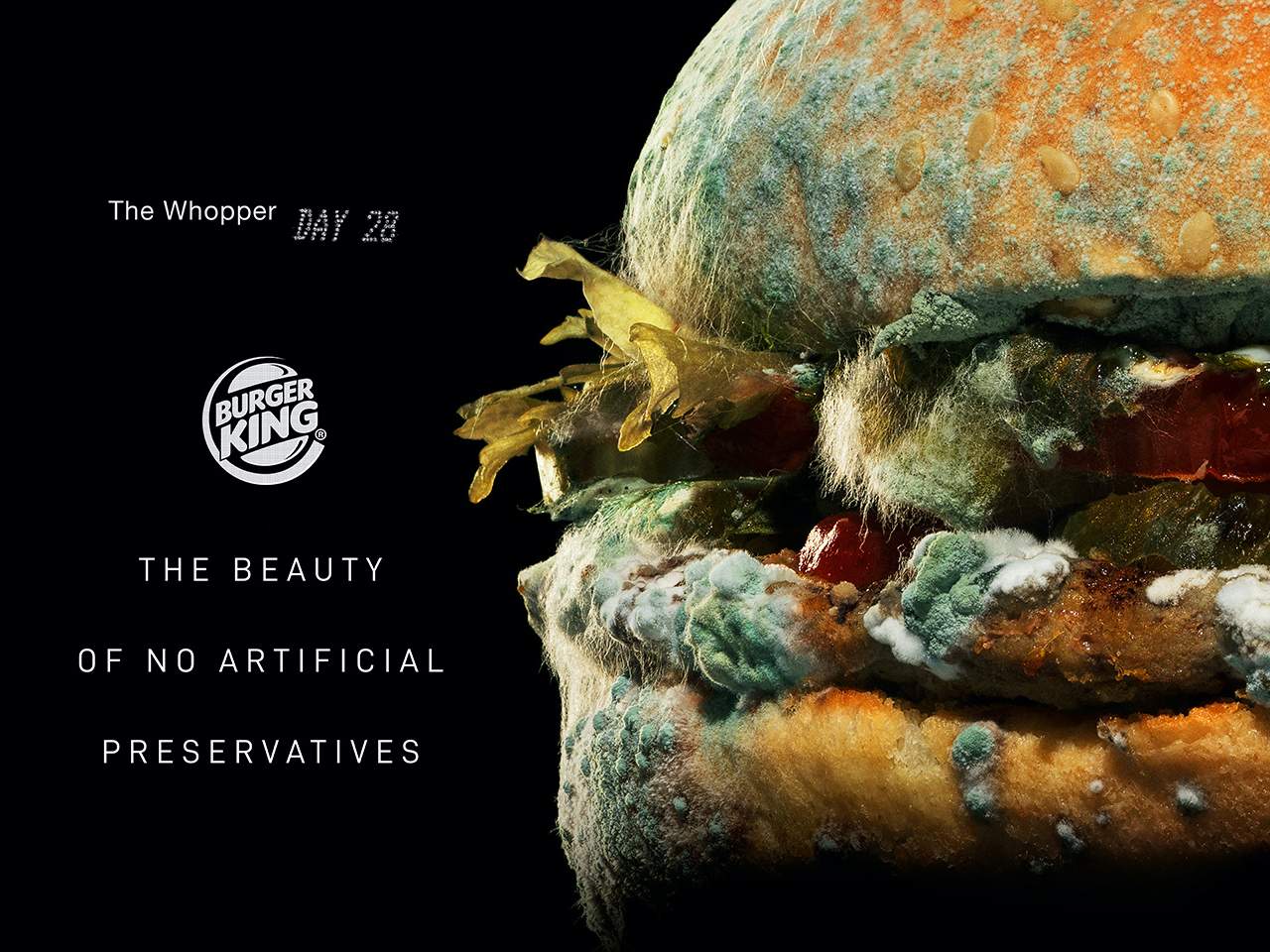- On Wednesday, Burger King posted a video of a Whopper decomposing and growing moldy on YouTube as part of an ad campaign.
- The campaign is meant to draw attention to the chain’s move away from preservatives and artificial flavors, which many fast-food chains have long been criticized for.
- The move is emblematic of a larger trend in the fast-food industry towards more “natural” and socially conscious foods.
- Visit Business Insider’s homepage for more stories.
“Natural” beauty has finally made its way into fast-food advertising.
On Wednesday, Burger King released a time-lapse video of its flagship burger decomposing and becoming covered in mold over the course of 34 days.
http://www.youtube.com/watch?v=oSDC4C3_16Y
The stunt is part of the chain's campaign to highlight its move away from preservatives and artificial ingredients. The chain has removed preservatives from the Whopper in most European markets and select US markets, according to a press release sent in an email to Business Insider.
"At Burger King we believe that real food tastes better," Fernando Machado, Restaurant Brands International's chief marketing officer, said in the press release. "That's why we are working hard to remove preservatives, colors, and flavors from artificial sources from the food we serve in all countries around the world."
Burger King is in the process of rolling out preservative-free Whoppers across the US and will serve them in all US restaurants by the end of 2020.
This move reflects a larger trend in the fast-food industry towards "natural" and socially conscious foods. McDonald's switch from frozen to fresh beef for its Quarter Pounders led to a spike in its burger sales for the first time in five years. And, at the end of January, Popeyes became the latest major chain to sign onto the Better Chicken Commitment, which mandates higher welfare standards for poultry used in the chain's food.
Artificial ingredients in fast food have long been a subject of fascination and scrutiny. In Iceland, a McDonald's hamburger and fries have remained on display since the last McDonald's restaurant in the country closed in 2009. The burger and fries have remained pristinely preserved and mold-free for over 10 years, seemingly showing no signs of decay.

